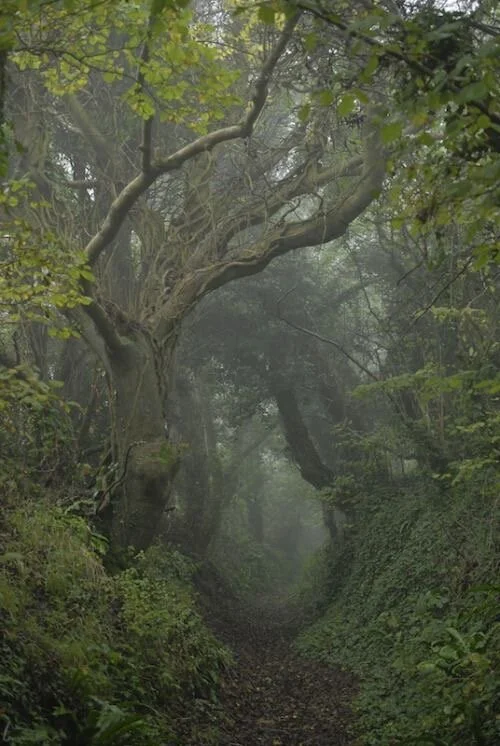The Intelligence of Nature
By Ailbhe Doyle
Dedicated to Kieran Flannery, a true man of nature (1957-2021).
Everyone knows that nature involves many orders, patterns and systems that allow her complex web to operate in the background of our lives. However, when we take a closer look at these systems, the instinctive intelligence that the natural environment holds is revealed. It is here that the question arises whether we should continue living with nature in the background of our lives, or perhaps promote her to the very forefront?
Nature knows a lot more than we do about staying alive and doing it well. From the inexplicable, like the inherent knowledge of migratory birds to fly perfectly a journey they’ve never flown before, or the geometric sequences found throughout nature, like the thousands of perfect hexagons in the wax of a beehive, there is something special about the earth’s intellect, so why not let her be our teacher? Evolution, for one, shows just how clever she can be. The adaption of plants and animals for survival is an anomaly in itself, like the wood frog that can freeze its body to survive the winters in its native Alaska. During this frozen stage their heart stops beating, but somehow when spring comes around they literally defrost and go on as if they haven’t just reincarnated.
This is possible due to the altering glucose levels in their body that maintain their plump cells and organs, prohibiting them from becoming internal raisins. The lunar cycle, one with which people, especially women, have been trying to sync with for centuries, follows a consistent pattern of a new moon, a waning moon, a full moon and a waxing moon. With the gravitational pull of the moon, tides become recurrent, as well as our bodily fluids (which although sounds very unpleasant, can actually be useful information), like a woman’s menstrual cycle. During a new moon it is natural to be in the menstrual stage of your cycle, a waning moon; the luteal stage, a full moon; the ovulatory stage and the waxing moon would encourage the follicular stage. This, however, is only scratching the surface of the brains of the earth. The wisdom of symbiosis, learning to live with one another so that more than one party benefits, displays the subconscious genius of the planet. The African oxpecker functions as pest control for safari animals like the rhino. The bird gets its nutrition from irritants like ticks on the rhino, while also freeing them of parasites. Another example closer to home is the more common, but no less clever, bee and flower. The bee collects pollen from one plant and continues to the next, leaving some of the pollen on the next flower, efficiently pollinating it, while collecting its own sum of pollen for the nest. Like symbiosis, feedback systems have been established through which an ecosystem can retain a frequent state of neutral. This occurs not by controlling what happens to it, but by controlling how it reacts. In a salt marsh, like the one at silver strand in Galway, when the sea levels rise, due to a storm for example, the flooding that follows falls onto of the adjacent saltmarsh. However, the surrounding ecosystem has no reason to panic, as the saltmarsh performs negative feedback, absorbing the excess water like a sponge and holding it until it can drain slowly and steadily back out to sea from under the soil. The common denominator of the patterns and systems etched in to the daily life of the earth is balance and cooperation. What I think we should begin to do is learn from the wisdom provided by the natural world and apply the blueprints to our lives. By mirroring these tried and tested behaviours, like adopting a slower and instinctive approach to life, not only would we see many benefits, but we would find ourselves in a more harmonious relationship with nature (something that is more important in today’s world than ever before).
Nature has an innate way of finding balance in everything it does, and as we are, in fact, expressions of nature ourselves, then surely we can join the rest of the natural planet in its harmonious lifestyle. In a world where support and balance is what we seek, it is likely in nature’s intelligence that we shall find.
Photography by David Sommerville

